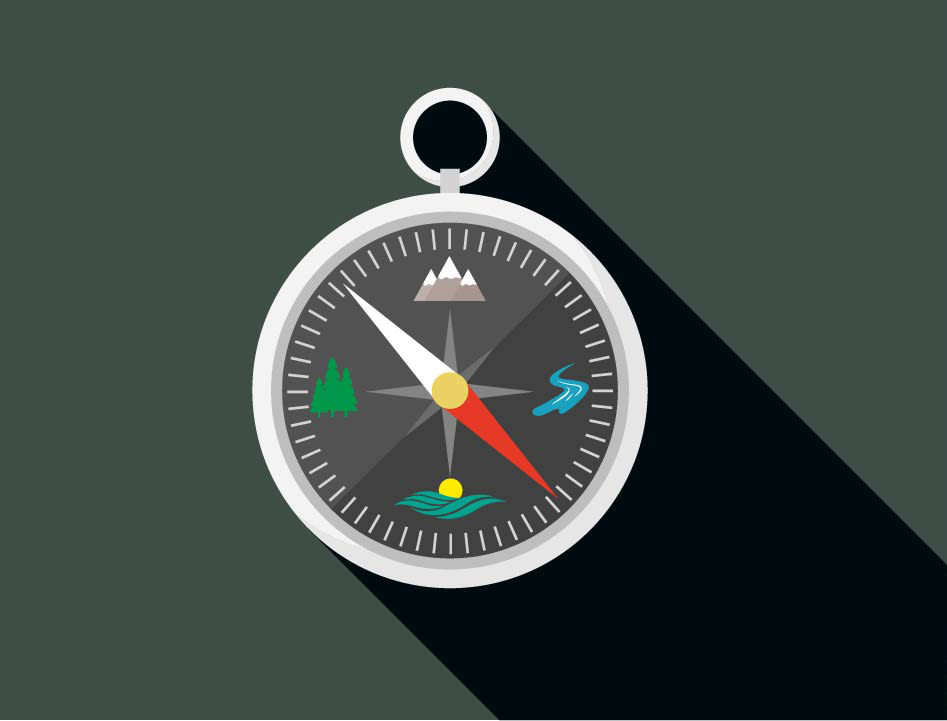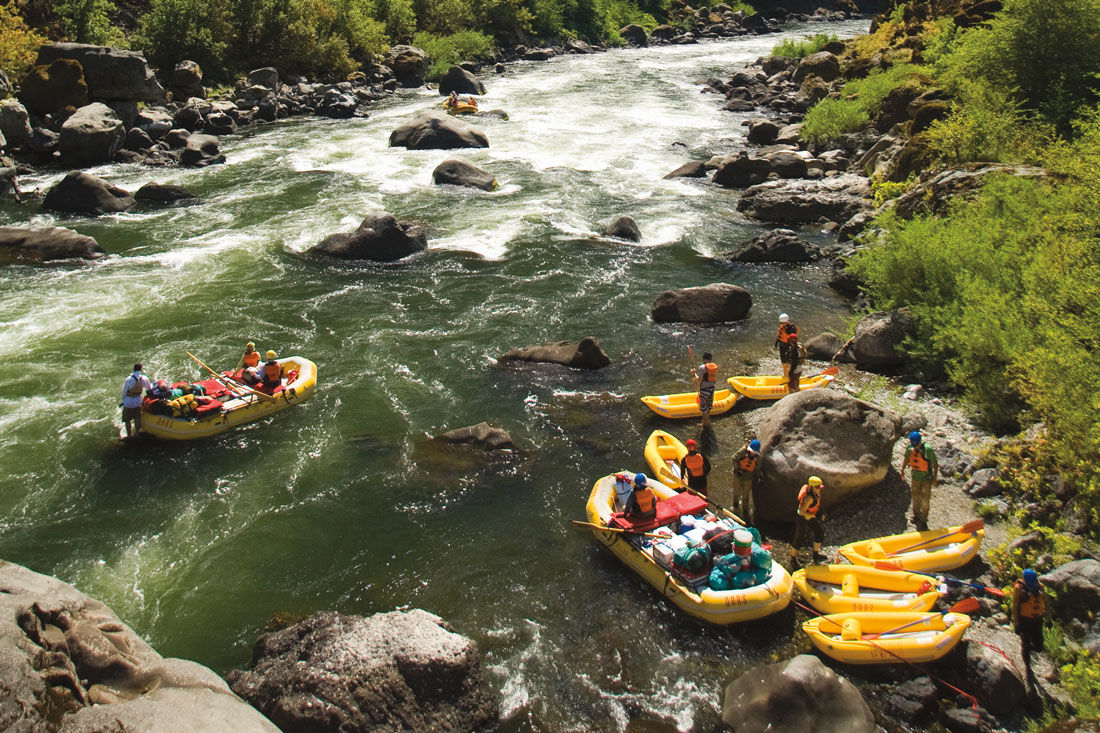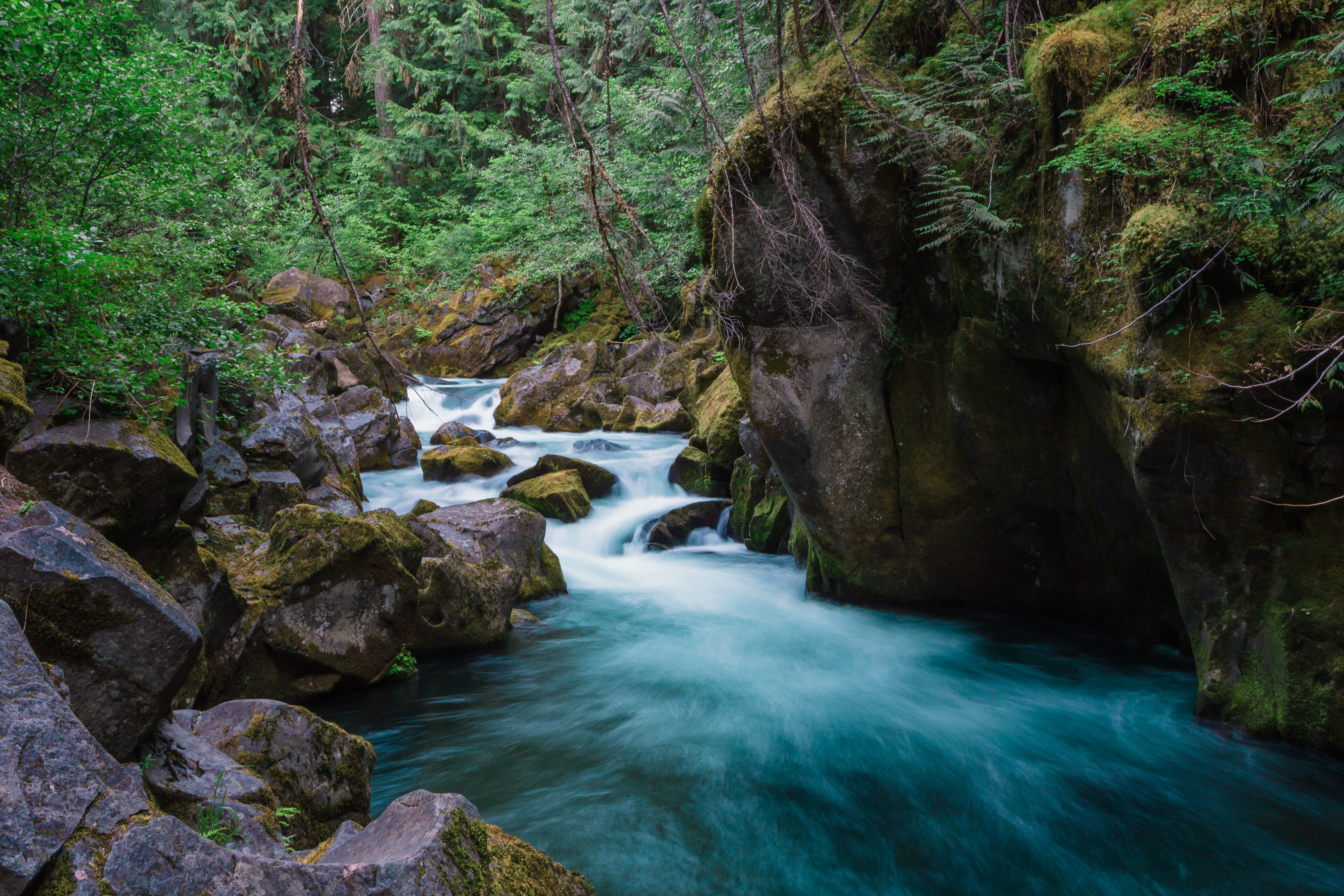How to Reserve a Hiking, Camping, or Backpacking Trip in Oregon

As permits become ubiquitous in the Pacific Northwest, knowing what, when, and how to actually get these permits can be tricky—which is all to say that it's never too early to plan your outdoor adventure in Oregon. (And we haven't even broached wilderness parking passes yet.)
Planning a hiking, camping, or backpacking trip this year? Here's what to know about the logistics of booking camping lands, as well as popular hiking and backpacking spots.
Jump to your adventure:
Camping Grounds / Hiking & Backpacking Hot Spots
Camping Grounds
Oregon State Parks
We’ve got more than 250 state parks to choose from in Oregon, and most of them require campground reservations. (Though for the first-come, first-served crowd, you’ve got options as well.) Rates vary: a basic tent site will set you back about $20 a night, while a spot with a full RV hookup edges closer to $40, or more for nonresidents. Reservations are accepted up to six months in advance and require an $8 fee. New in 2024 is same-day booking, which waives the $8 fee. For folks who prefer a sturdier roof over their heads, cabins and yurts are also available (and book up quickly) at some state parks, and run $42 to $99 per night.
Oregon State Forests
Campgrounds at Oregon State Forests operate on a first come, first served basis. The Oregon Department of Forestry offers three types of camping in 28 different areas: developed campgrounds, designated campsites outside of regular campgrounds, and dispersed camping. Fees range from $5 per vehicle per night to $20 per night for up to two vehicles. Exceptions: reservations can be made six months in advance, using reserveamerica.com, at the group campsites in the Tillamook State Forest (Jones Creek and Nehalem Falls campground, and Browns Camp OHV campground and staging area) and at equestrian-specific campgrounds in the Clatsop and Santiam State Forests.
BLM Oregon
The Bureau of Land Management—the nation's largest land management agency—administers millions of acres of land in Oregon, from the heavily forested areas west of the Cascades to the sagebrush rangelands in the eastern part of the state. The land has many uses, including extraction (think timber harvesting and mining), wildlife and wilderness protection, and livestock foraging—and also camping. There are about 100 BLM in campgrounds in Oregon, most of which are first come, first served, though some do accept reservations (at recreation.gov), fees for which vary from site to site. The facilities at the campgrounds might include restrooms, picnic areas, garbage bins, electrical hookups, potable water, electrical hubs, group shelters, and sleeping pads—though some campsites have just the basics—a picnic table and a firepit. For the purists among us, dispersed camping is allowed on public lands away from developed recreation facilities. The BLM also administers boating permits on several rivers in the state, such as the Deschutes and the Rogue, which double as your boat-in camping pass for multiday trips.
US Forest Service
In addition to loads of campgrounds across the state, the Forest Service rents historic (and wildly popular) cabins and lookouts that'll give you a taste of life as a ranger. These reservations can be made six months in advance through recreation.gov.
Hiking & Backpacking Hot Spots
C2C Trail
In 2021, the city of Corvallis celebrated the opening of the Corvallis to the Sea Trail, a 62-mile network of public land, abandoned roads, gated corridors, and low-traffic roads that stretch from Corvallis to Ona Beach State Park on the Oregon Coast. On the C2C, you can camp out (in designated camping spots only!), and you need to grab a free permit. Be prepared: the trail is very difficult. With limited water along the route, travelers should know that any natural water sources will need to be purified. Hustling hikers can complete the trek in just three days, but the C2C partnership says the trail is best tackled at a more leisurely pace over five or six days.
Central Cascades Wilderness
Implemented in 2021 following years of overuse, overnight trips from June 15 to October 15 through Oregon’s Central Cascades now require a permit ($6), which are released in batches: about 40 percent of the overnight permits are released on the first Tuesday in April, with the remaining overnight permits becoming available seven days before a trip start date. Day-hikers also need a permit on 19 of 79 trailheads within the area ($1). These are released in two rolling windows: 10 days and then two days before the trip date. Full details can be found on this Forest Service website, and permits are available through recreation.gov.
Pacific Crest Trail
Crossing the 2,650-mile Pacific Crest Trail—or sections of it—off your bucket list this year? Don’t forget to snag a free long-distance permit if you plan on hiking (or riding horseback) for 500 or more continuous miles along the PCT in a single trip. No permit is needed if your trek is under 500 miles.
Crater Lake National Park
Per the National Park Service, you need a backcountry camping permit for any and all overnight trips in Oregon's only national park, regardless of the season. Good news for those who don't care for hunching over their computer and waiting for the permit season to open (but bad news for advance planners): Permits are available no more than one day in advance, and can only be obtained in person, from 8 a.m. to 4 p.m. (4:30 p.m. in the summer months) from the ranger station at park headquarters. There are five designated backcountry campsites, and dispersed camping is also allowed with a permit, but you've got to be at least a mile from any maintained road, 100 feet from a water source or a meadow, and out of sight of trails and other hikers—plus no campfires.




